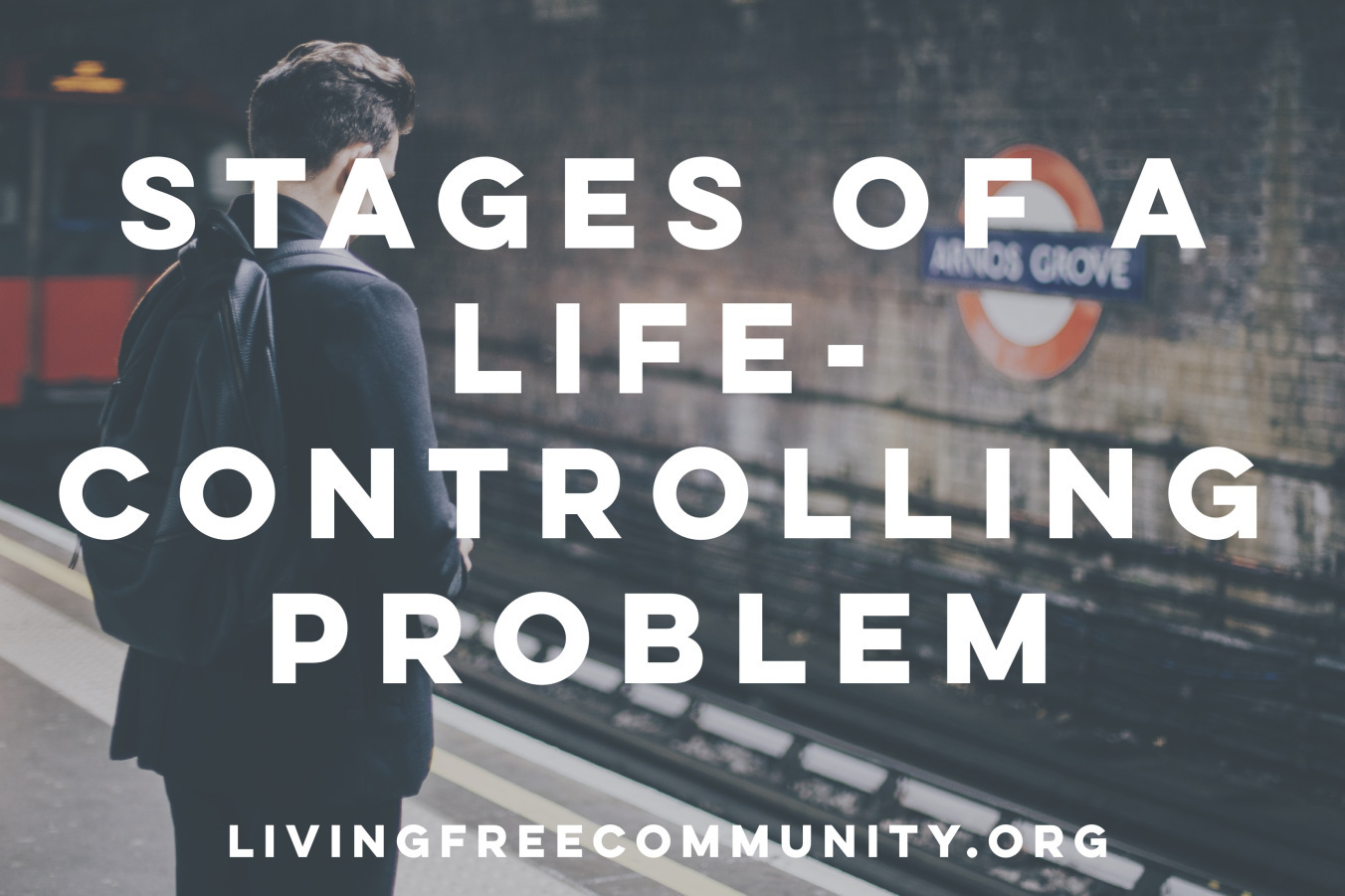
Vernon E. Johnson, founder and president emeritus of the Johnson Institute in Minneapolis, observed (without trying to prove any theory) literally thousands of alcoholics, their families, and other people surrounding them. He writes, “We came up with the discovery that alcoholics showed certain specific conditions with a remarkable consistency” (8).
Dr. Johnson uses a feeling chart to illustrate how alcoholism follows an emotional pattern. He identifies four phases: 1) learns mood swing; 2) seeks mood swing; 3) harmful dependency; 4) uses to feel normal. Many of the observations made by Dr. Johnson and others, including us, can also be related to other types of dependencies, although the terminology may differ.
In Living Free materials, these four stages are labeled: 1) experimentation; 2) social use; 3) daily preoccupation; and 4) using the substance or practicing the behavior just to feel normal. Not everyone progresses through all these stages, however there is no way to predict which people who begin the pattern will continue to stage four.
By the time people arrive at stage three, their developing life-controlling issues are clearly idols in their lives. They are beginning to suffer negative consequences from their involvement, but instead of slowing down in response to the pain, they involve themselves more deeply. They look to the behavior, substance, or relationship that is entrapping them for comfort or relief. Their delusion grows deeper until they no longer recognize the truth.
In the Living Free training series video, we looked at the stages an alcoholic typically goes through as drinking becomes a life-controlling problem. However, these stages can also apply to behavioral struggles. These are the stages people often experience with an eating disorder, a sexual addiction, and several types of emotional struggles. Although the actual name used for the phase may be different and the details may vary, what is important to know is that even though life-controlling problems take many forms, they develop along similar predictable patterns.
Adapted from Living Free Coordinator’s Guide, Jimmy Ray Lee and Dan Strickland, Turning Point, Chattanooga, TN, 1999, pp 40-42.
Used by permission